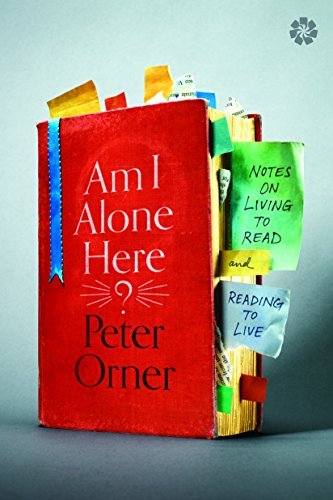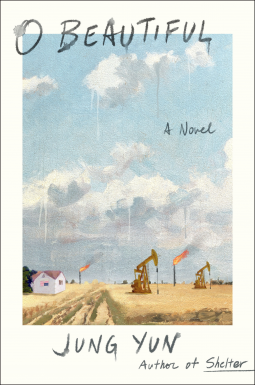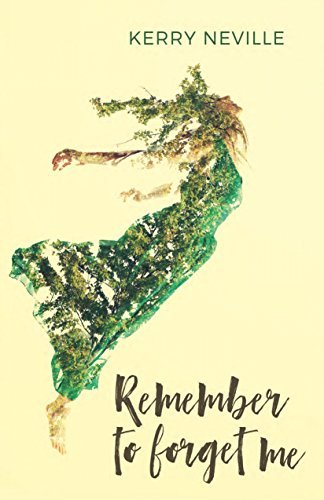Go, Went, Gone by Jenny Erpenbeck was recommended to me in preparation for my upcoming trip to Berlin. The novel, translated from German by Susan Bernofsky, is about Richard, a recently retired professor who is coping with many changes in his life. He has just retired, his wife died recently, he’s still not completely used to German reunification, and he’s just become aware of the presence of African refugees in Berlin. Many of these refugees have fled violence in Libya, although they are from various other African countries. After surviving dangerous voyages across the Mediterranean, they arrived in Italy, only to find no opportunities there. So they’ve come to Germany to face a Catch-22—even if Germany wanted them, under a European treaty, they have to be dealt with by their first country of entry. Richard is nearly as perplexed as the refugees are, but he tries to help them. It’s a dense novel that addresses important issues in Germany and across Europe.
The Man Who Saw Everything by Deborah Levy was also recommended to me to help me understand Berlin’s environment, but I didn’t read it until the flight home from Germany. Because I’d spent three weeks in the city at that point, the territory and the history of what Saul, the main character in the novel, faces were familiar to me. Still, much of it surprises–from the warped sense of time and memory, the similarly warped sense of beauty and love, to the erratic thought process of Saul. I don’t think the book is perfect and I don’t think Levy gets the character of Saul quite right. Nonetheless, it provided excellent distraction on a long flight.
Lessons by Ian McEwan is another novel set partly in Berlin, but it’s about so much more than that. The main character is the son of a British military man and his wife who are posted in North Africa. The son is sent back to England to school where he studies piano and falls under the influence of his pretty piano teacher. At the age of fourteen, he begins an intense sexual relationship with her that truly warps him for life. Later he has a series of relationships, eventually marrying a woman who was briefly his German teacher. When she leaves him and their infant son, he embarks on a quest to understand her and at the same time tries to understand what happened to him as a child. His ex-wife becomes a very successful novelist in Germany, and some of what she writes about deals with the anti-Nazi movement, while the protagonist himself is trying to understand first the divide of Berlin and then the changes wrought by the wall’s collapse.
Am I Alone Here? Notes on Living to Read and Reading to Live by Peter Orner is a collection of personal essays, most of which connect the author’s observations on reading with his own life experiences. It’s quite an enjoyable read because of that. In the process of his astute interpretation of many works—some well-known, some a bit more obscure—he also reveals things about his relationships with his father, his ex-wife, his daughter, his mentor, and others. Perhaps because I met the author when he was a fellow years ago at the Bread Loaf Writers’ Conference (I was a mere participant), I found the book charming and enlightening.
Visitation by Jenny Erpenbeck is yet another novel by this German writer, again translated by Susan Bernofsky. This one is quite challenging, but it tells the story over time of a house on a lake near Berlin that witnesses the devastating course of the many horrors of the 20th Century in Germany: the murder of the Jews, the arrival of Russian soldiers in the Battle of Berlin, the restrictive nature of the East German government. It’s a bit like a time-lapse photograph in which the house and garden undergo constant changes. Trees grow and are cut down, crops are planted and then devastated by bugs, people are born, grow old, die. It’s a short, dark book.
O Beautiful by Jung Yun has some strong points, but I had a very hard time caring about the protagonist, who seemed determined to be difficult to deal with. Understandably, perhaps—she had a background that maybe created that attitude, having faced both racial and gender discrimination—but for a journalist who needs other people to provide information and help, she was needlessly antagonistic. The story is about a woman who visits North Dakota to write a story about the oil boom there and the impact on a particular town of the arrival of outsiders. Her interest shifts to the impact on women, both local and newly arrived. But the book ends abruptly without any clear resolution. Does she finish her article? Does she find her mother (who walked out the family when her daughters were quite young)? Do any of the other loose ends get tied up?
Remember to Forget Me by Kerry Neville is a collection of fine short stories published by Braddock Avenue Books (which published my novel The Shaman of Turtle Valley). Many of the stories are about relationships between men and women, even when those relationships are not at the center of the story. Often, when the relationships are central, there’s something decayed, a kind of rot that indicates the coming end. The settings are neatly varied—New York, rural America, Greece, Romania, etc.—which adds a nice rhythm to the overall collection.








Thanks for all your insights into your reading—it’s a public service: how many books a week do you read?
Usually at least one. I aim for 5 or more per month. October was a big reading month because I was traveling.